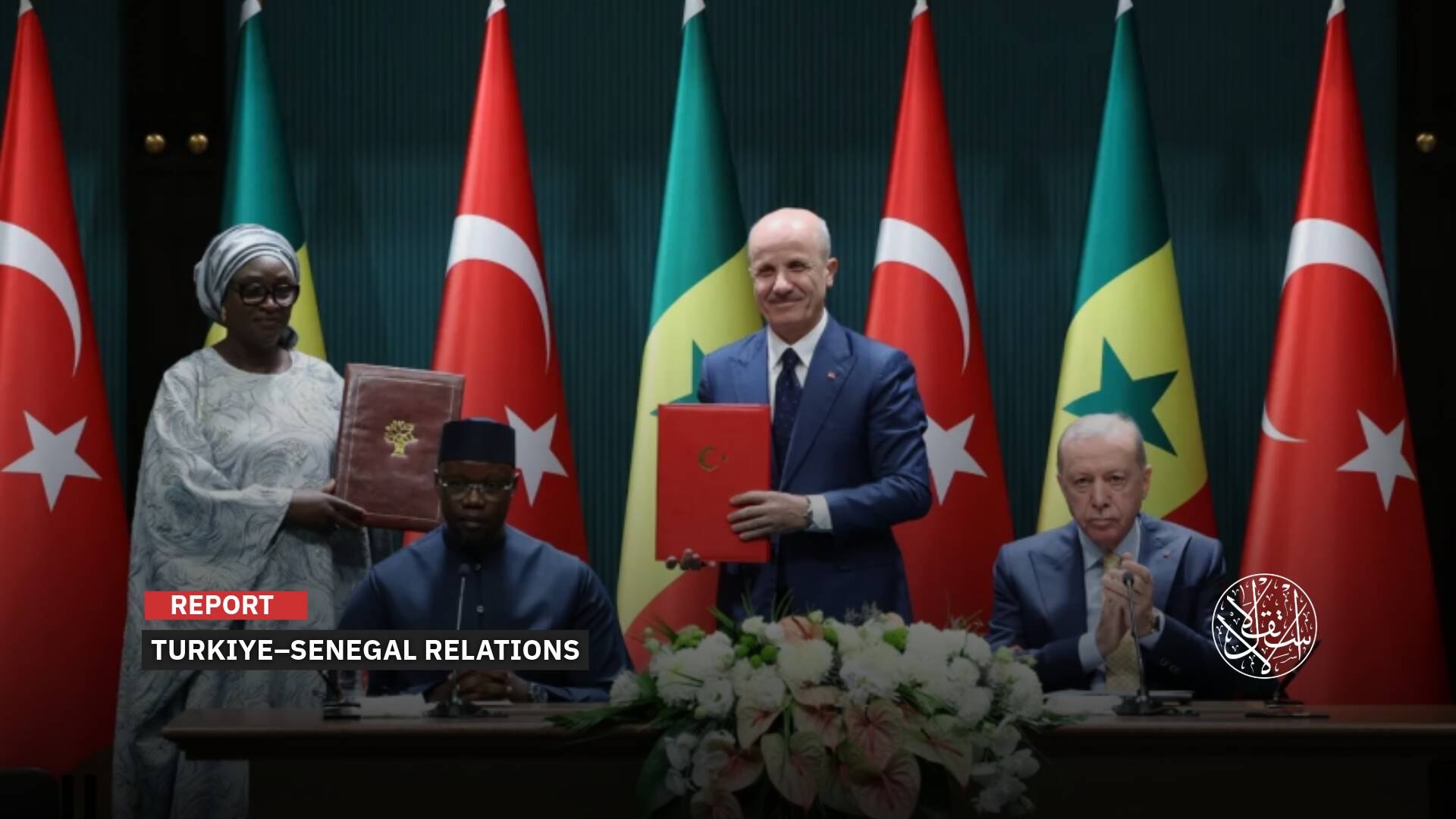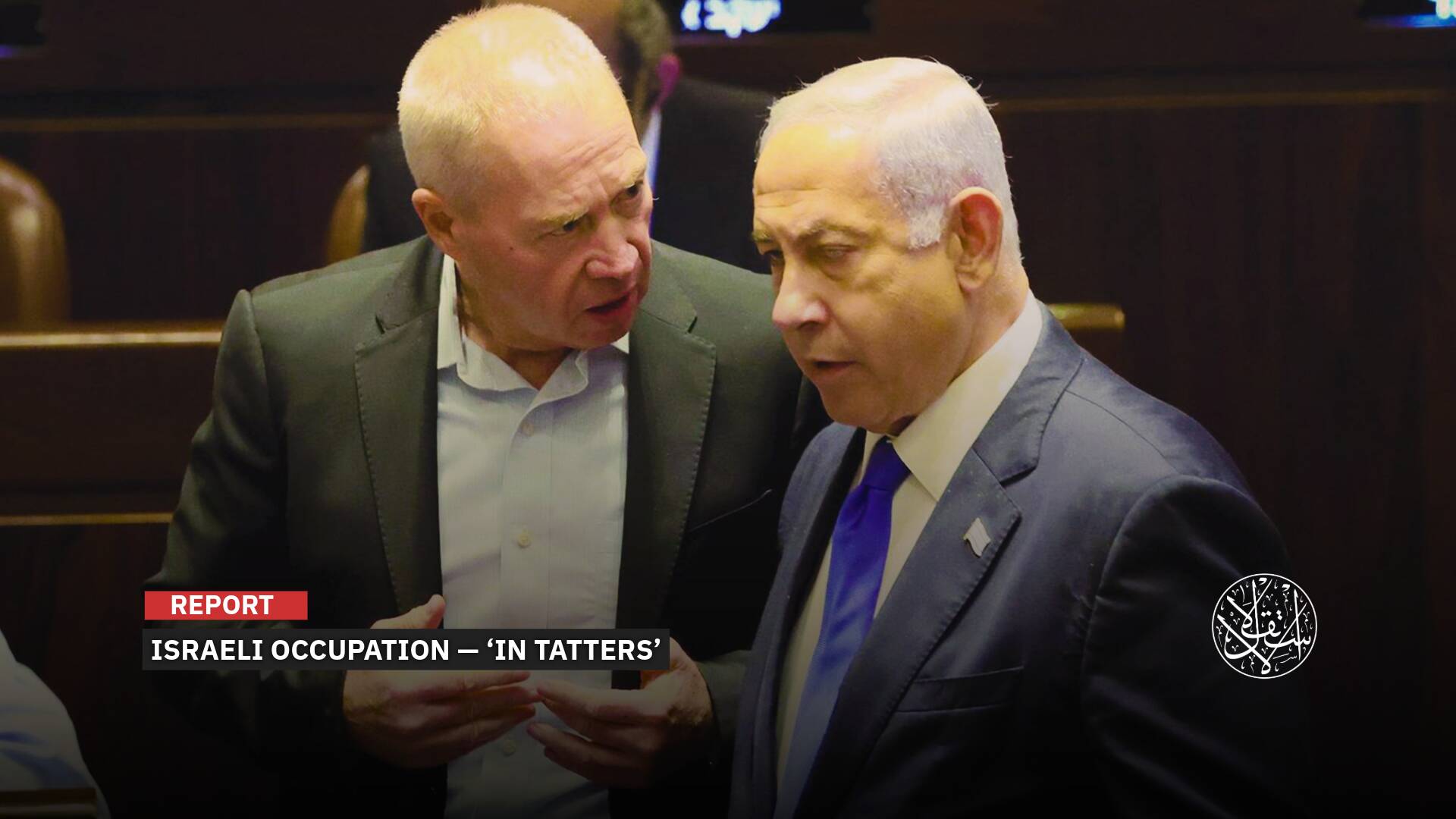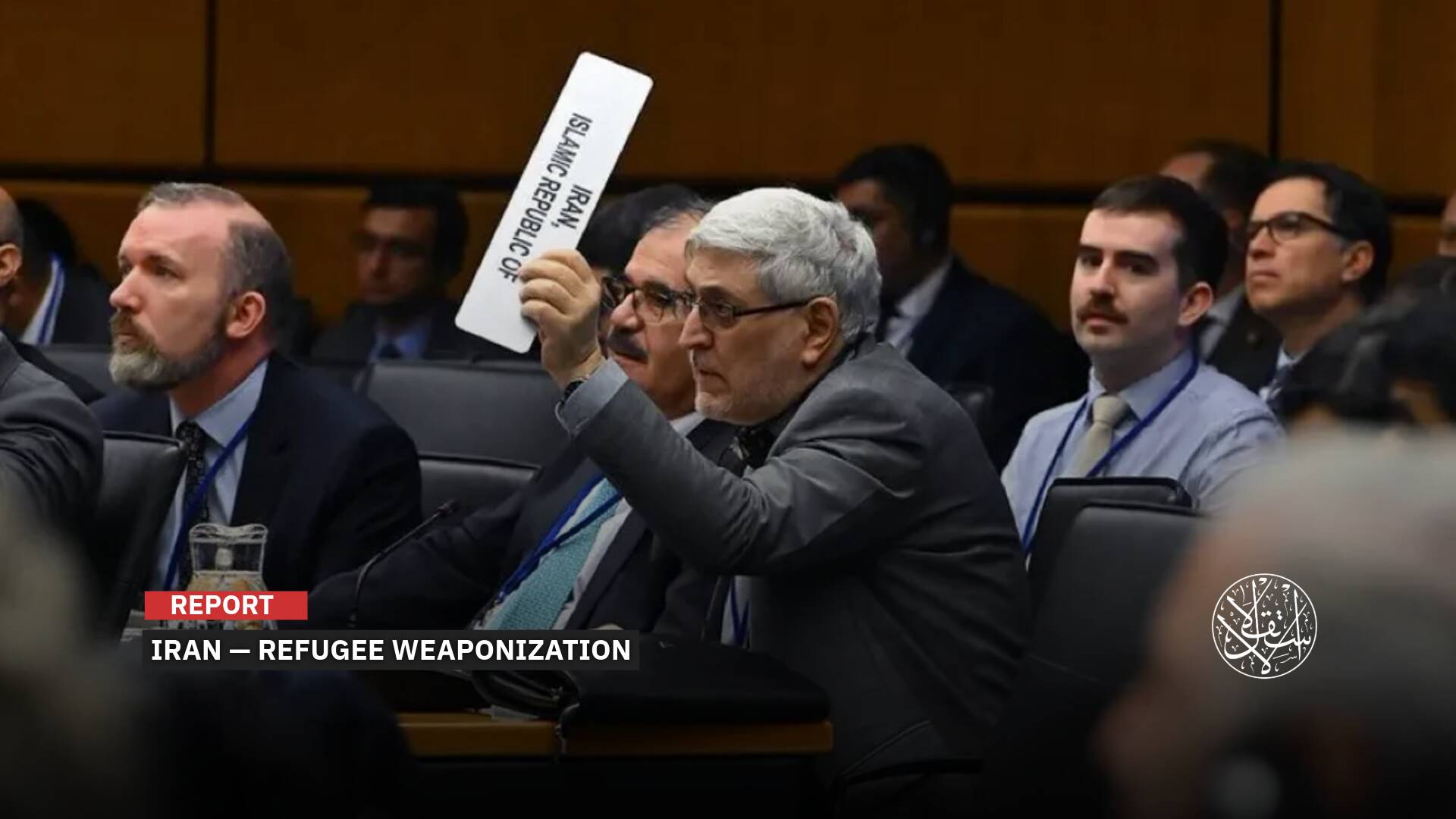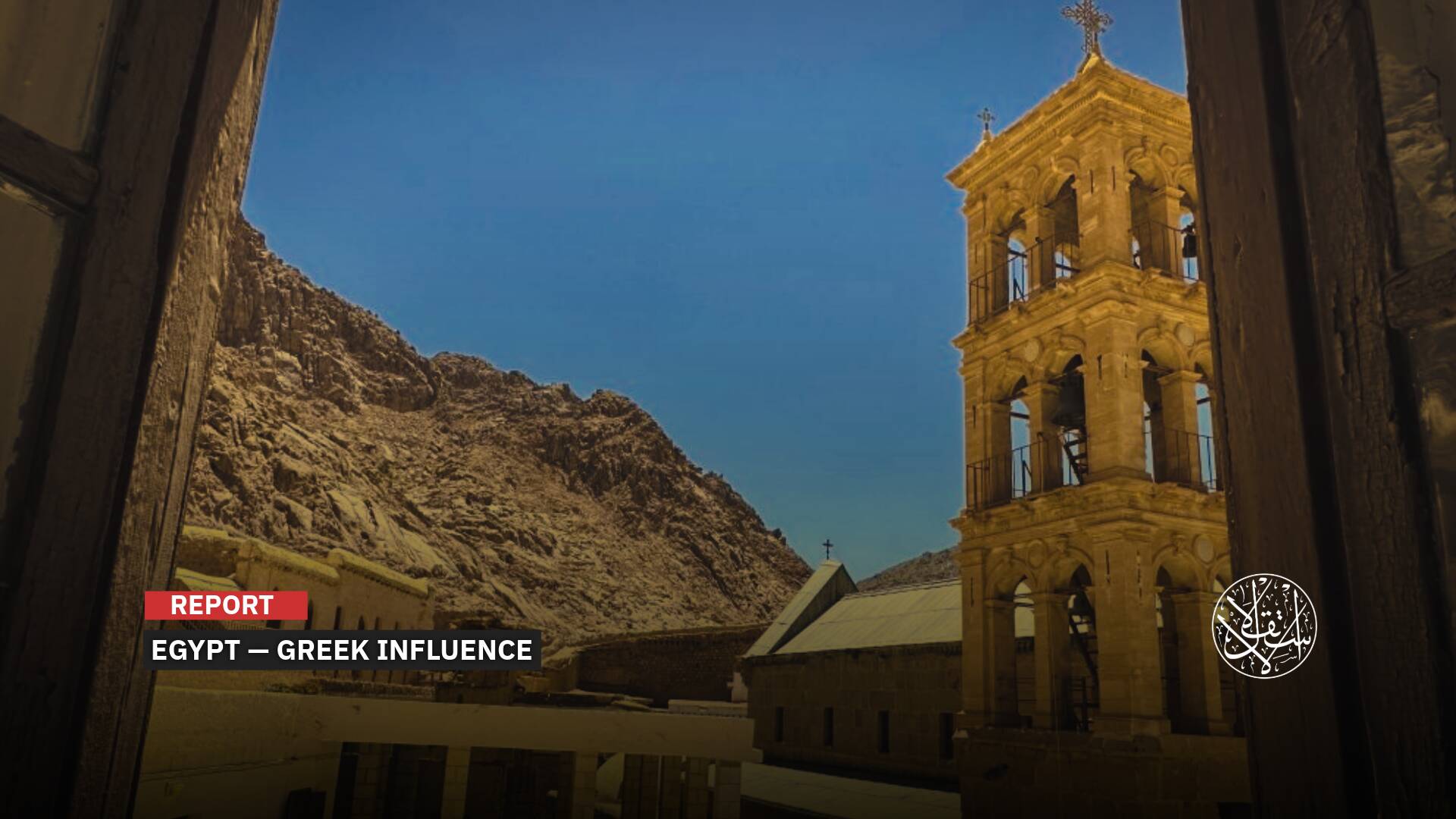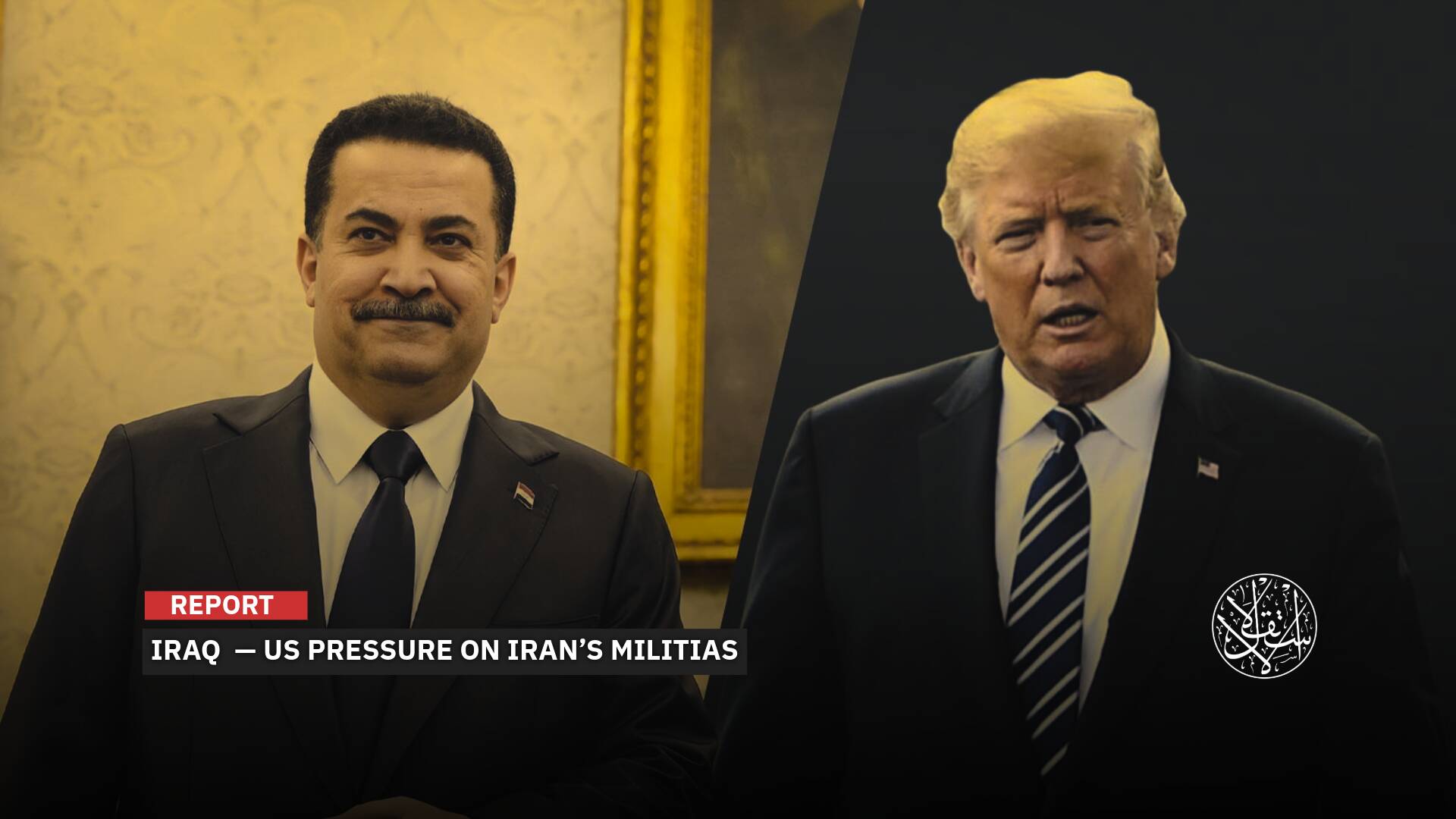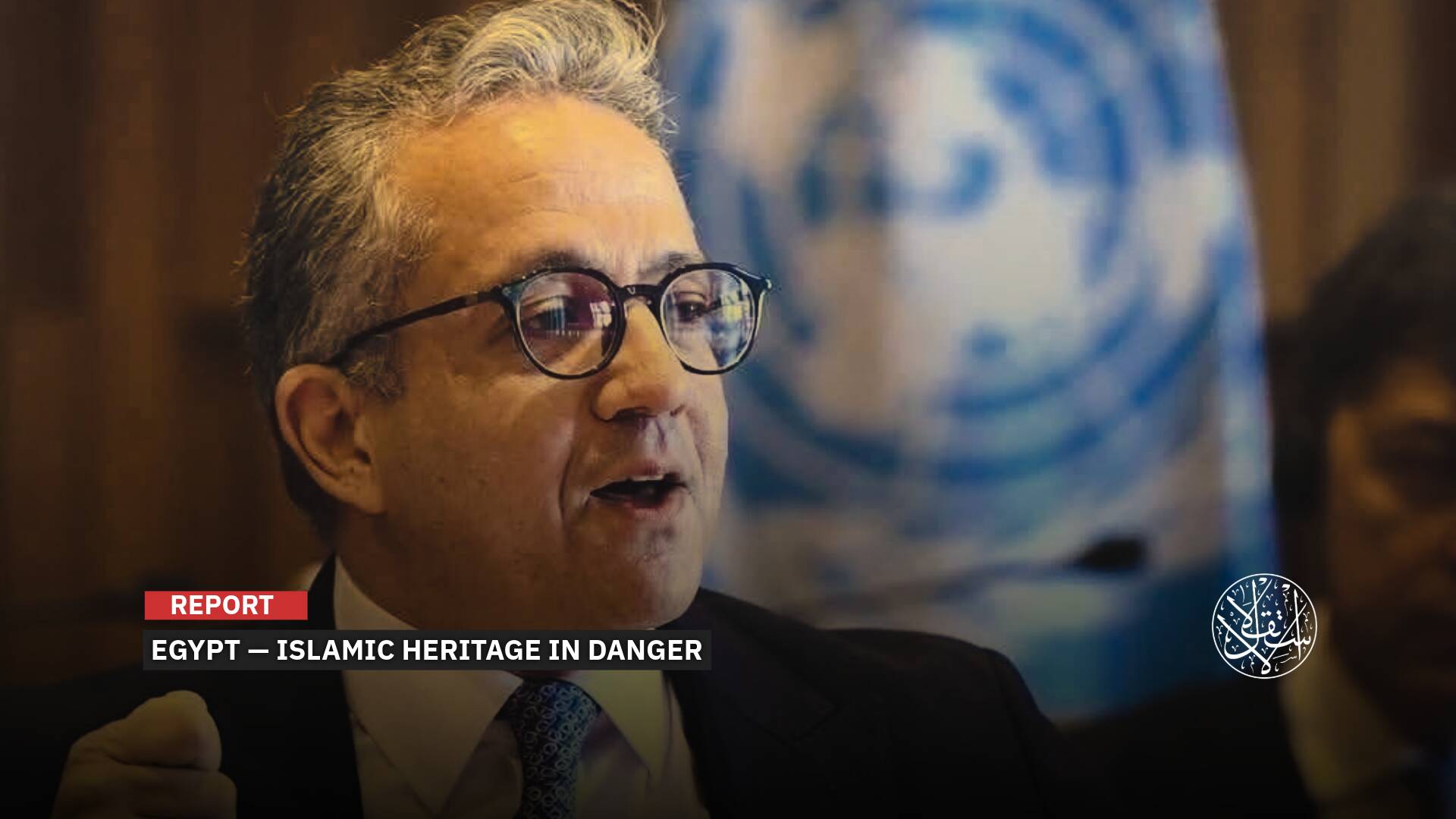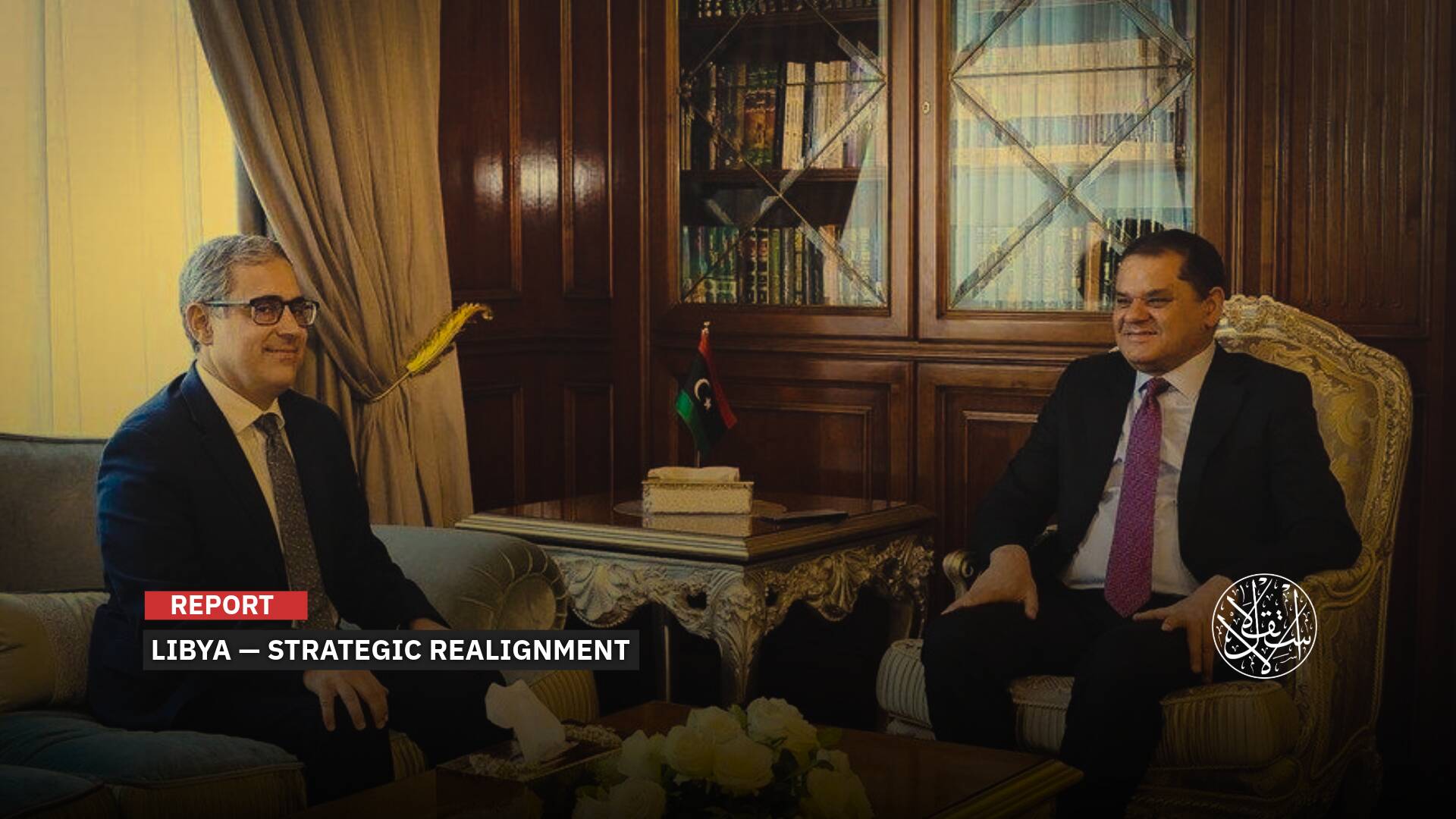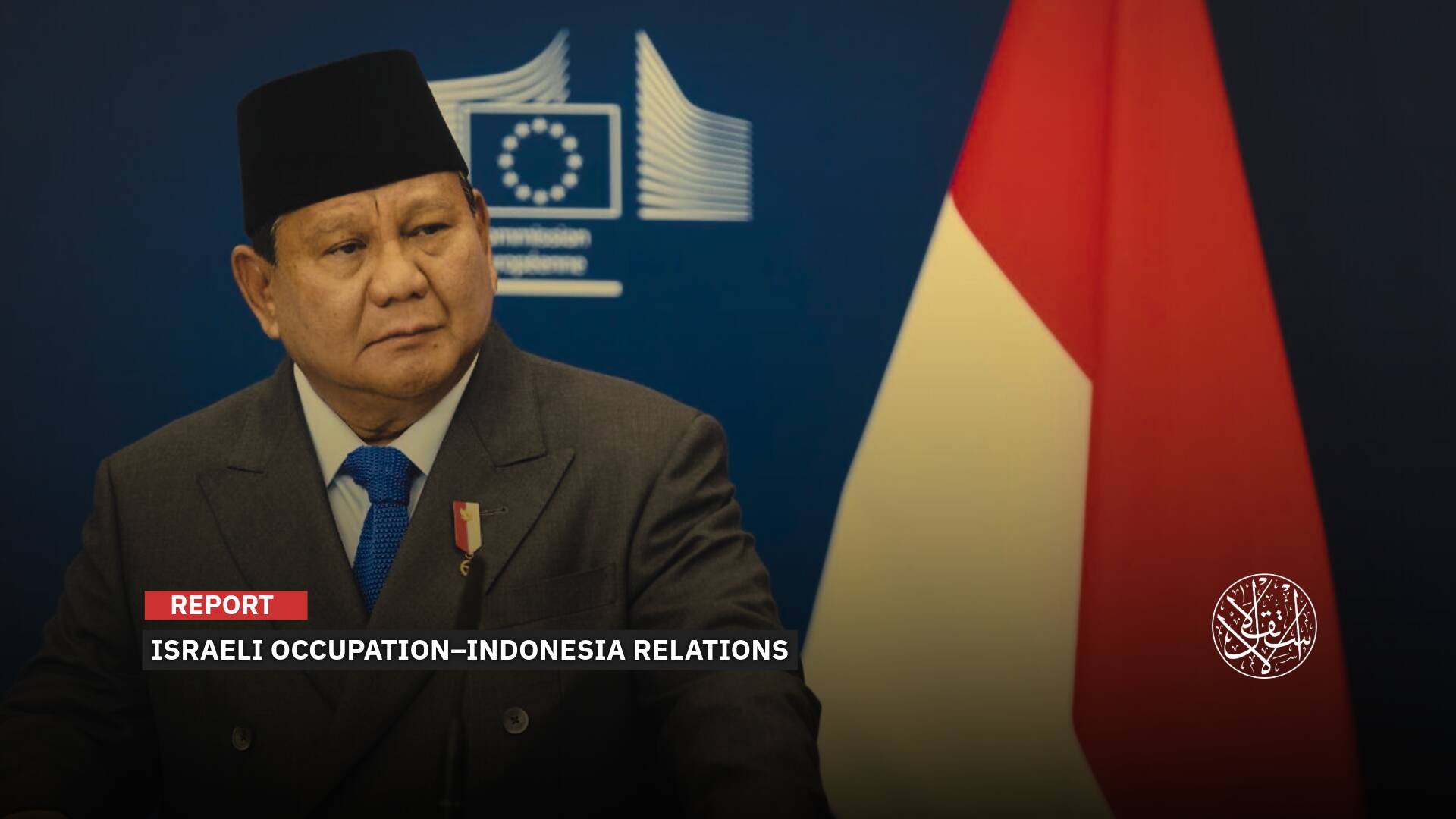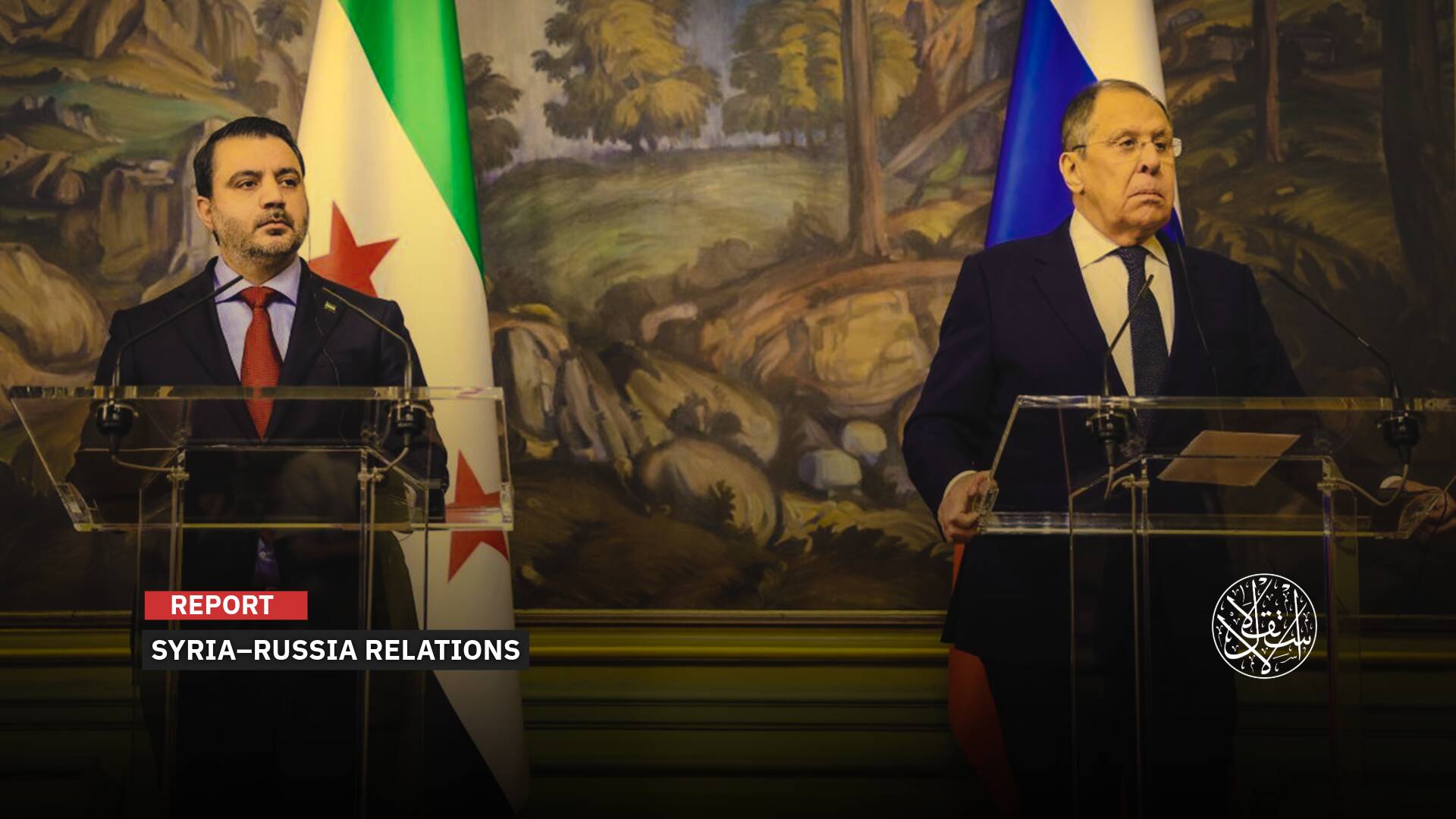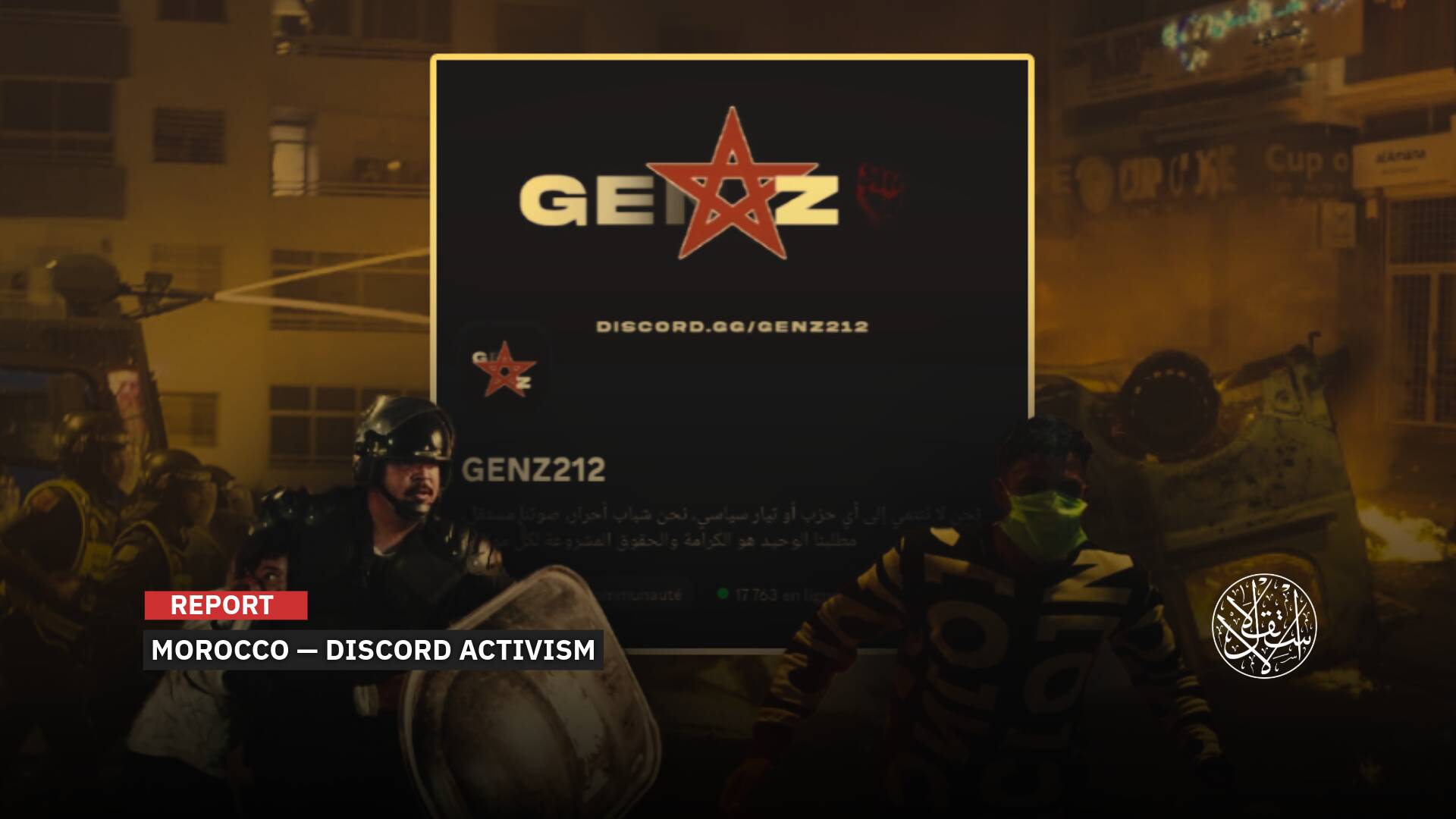Netanyahu’s New Plot: Handing Over Gaza to a Private Mercenary Company

The private mercenary company employs numerous former Israeli intelligence officers.
Contrary to Israeli war leaders’ claims of having no “day-after” plan for Gaza, several Hebrew and foreign reports have revealed a proposal to hand over the administration of Gaza to a private mercenary company licensed for lethal operations.
The “Gaza Administration plan” involves appointing a U.S.-based private military firm, Global Delivery Company (GDC), to manage the Strip, which has faced starvation and devastating attacks since October 7, 2023.
This company employs many former Mossad intelligence officers and is led by Mordechai Kahana (Moti), an Israeli-American businessman.

Plan Details
The plan proposes that the Global Delivery Company (GDC) be tasked solely with feeding Palestinians and delivering international aid, framing Gaza’s “detention camps” as “humanitarian zones.”
The proposal coincides with the Israeli Occupation's deliberate block on health and basic services in northern Gaza, creating a severe humanitarian crisis by halting food and medical aid to forcibly displace residents, thereby setting the stage for “GDC’s operations” targeting those who remain.
The underlying objective is to absolve the Israeli Occupation forces of accountability, distancing them from war crimes and human rights violations in Gaza. Mercenary companies, like GDC, operate without legal or criminal accountability in international courts.
Yedioth Ahronoth first reported on the plan on October 19, 2024, highlighting a “humanitarian” approach to food delivery and protection in Gaza. The report mentioned that the Israeli army had chosen GDC, owned by Moti Kahana, to manage aid deliveries. However, Kahana noted that he had not yet received formal confirmation and indicated that the decision depends on the Israeli Ministry of War.
GDC’s strategy includes establishing “humanitarian zones” in Gaza, where the Israeli army would “clear” each area of “terrorists” (resistance fighters) and erect security walls around residential sectors. Access to these zones would be restricted to residents, identified through biometric verification, including fingerprint and iris scanning.
These barriers would purportedly “protect” humanitarian convoys delivering aid to each zone and prevent “theft by Hamas or other groups,” according to the report. The barriers are to be implemented within 30 days of GDC’s formal approval from the occupying authorities.
GDC, a U.S.-based private security firm active in conflict and disaster areas worldwide, is led by Israeli-American businessman Moti Kahana and operates in over 100 countries with a staff of more than 14,000. Kahana gained attention for his role in a purported “mission” to evacuate Afghanistan’s last Jewish rabbi following the Taliban’s takeover in August 2021, and he has organized “humanitarian” missions in Syria and Iraq for U.S. aid distribution.
GDC’s ranks include former senior Israeli army officers, U.S. and UK intelligence and military veterans, and Kurdish fighters. Notable Israeli figures linked to this project include Major General (Res.) Doron Avital, Brigadier General (Res.) Yossi Kuperwasser, and former Israeli Navy Commander David Tzur, as mentioned in Jewish Press.

Aid as a Pretext
The inclusion of humanitarian aid to Gaza was a central topic in recent discussions between the U.S. and Israeli governments. Washington reportedly pressured “Tel Aviv,” even threatening to suspend arms transfers if food and medical aid for Palestinians continued to be blocked. This pressure spurred the new aid distribution proposal, as per Yedioth Ahronoth.
Israeli Prime Minister Benjamin Netanyahu recently held emergency consultations following this U.S. threat, as outlined in a National Security Memorandum, warning “Israel” to increase humanitarian aid into Gaza. Facing mounting international criticism, not only from the U.S., Netanyahu ordered the daily number of aid trucks entering Gaza to increase to 250.
A joint proposal by Western security establishments and “Israel” was introduced to bring in the Israeli-American firm GDC to handle aid distribution to manage aid distribution. The Guardian confirmed the proposal on October 22, 2024, noting Israeli Occupation’s consideration of using private security companies, including British veterans, to deliver aid as conditions in northern Gaza worsen.
An Israeli official informed The Guardian that the Israeli security cabinet discussed the issue on October 20, ahead of two upcoming Knesset bills that would severely restrict UNRWA’s aid activities in Gaza. If passed, these laws would disrupt Gaza’s main relief pipeline, exacerbating hunger, as “over a million people are currently without food.”
Indeed, “Israel” passed one of the laws on Monday, October 28, 2024, banning the UN agency from operating.
Kahana, the head of GDC, alleged that aid entering Gaza is being looted, claiming it often ends up with Hamas. He argued that the Israeli army is neither equipped nor trained for this type of aid delivery, pointing to the “Flour Massacre” on February 29, 2024, when Israeli forces opened fire on a crowd waiting for aid in Gaza City, killing 118 and wounding 760.
To address this, Kahana proposed creating secure “enclosed communities” for aid distribution—designated areas where aid could be provided under armed guard. He described his plan as establishing “safe zones” where Palestinians could live securely, receiving humanitarian supplies directly.
The concept resembles a “ghetto,” originally a confined area for Jews in Venice in 1516. Yet Kahana denied such a comparison, telling The Times of Israel on October 22 that the designated zones would allow free movement in and out.
He also claimed his firm would provide a secure environment where local residents could access aid without paying “protection fees” to Hamas or criminal gangs. “Israel” had previously approached Gaza’s local family leaders about aiding in distributing supplies, but they refused, only offering cooperation if Gaza’s internal security was involved in distribution oversight.

‘Uber of War’
“Israel” is evaluating a plan to deploy private American logistics and security companies to establish a “closed community” in Gaza, where Palestinians would undergo biometric checks to access aid, Drop Site News said on October 22, 2024.
Kahana, head of GDC, described his for-profit military company as the “Uber of war zones,” citing its operations in five recent conflicts—Afghanistan, Syria, Iraq, Ukraine, and Gaza—over the last 14 years.
Adding complexity, Stuart Seldowitz, a senior “humanitarian diplomacy” advisor at GDC and a former member of the Obama administration, faced hate crime charges in 2023. He was recorded harassing a Muslim food vendor in the U.S., telling a young Egyptian, “Killing 4,000 Palestinian children in Gaza isn’t enough,” a statement made before Gaza’s civilian death toll has risen above 45,000.
Seldowitz was caught threatening the Egyptian vendor and making offensive remarks about the Prophet Muhammad (PBUH), leading to widespread public outrage and his subsequent arrest by U.S. authorities. Although GDC cut ties with Seldowitz, Kahana told Drop Site News that he remains open to collaborating with the former U.S. official.
Kahana has made several provocative statements, including calling U.S. Congresswoman Rashida Tlaib “Hamas’s ambassador to the United States” in November 2023, and advocating for the ethnic cleansing of Palestinians from Gaza by relocating them to Jordan.
Netanyahu’s Objectives
Israeli journalist Noa Landau revealed in an October 22, 2024 article in Haaretz, titled “Netanyahu is Selling Gaza to Private Militias,” that the Israeli government has opted to contract a private company owned by Israeli and American interests. According to Landau, Netanyahu’s “day-after” plan for Gaza involves a combination of military occupation, mercenaries, and new settlements. She emphasized that the plan includes “privatizing” military governance in Gaza as part of post-conflict strategies.
Landau warned about the dangers of dealing with companies like GDC, a military contractor associated with operations in Iraq and Afghanistan, noting these types of mercenary groups often act outside of legal norms and international standards. Research over recent years, she added, highlights severe risks when relying on such contractors, whose actions often involve excessive violence and lack legal accountability. Landau stressed that Netanyahu’s intent is to transfer moral and legal responsibility away from “Israel,” placing it in the hands of armed militias not bound by law.
The GDC leader suggested in an interview with Yedioth Ahronoth that his company’s forces are authorized to use lethal force against Palestinians if necessary.
“If something happens, we will send the message to the residents of Gaza: You don't want to mess with us. I assure you that this message will soon get through. They will understand that a new sheriff has arrived in town,” Kahana stated.
What Kahana said is commonly associated with mafia rhetoric, implying continued massacres at the hands of mercenaries, while “Israel” absolves itself of responsibility.
The Guardian also quoted Jeremy Konyndyk, a former senior aid official in the Biden administration, who said the U.S. experience with similar contractors in Iraq and Afghanistan has always been disastrous. Now president of Refugees International, Konyndyk warned that mercenaries, funded by the U.S., often resort to armed security tactics and have previously launched attacks against civilians viewed as potential combatants.
On October 21, 2024, GDC issued a press release claiming its security personnel are trained in both non-lethal and lethal methods for crowd control, with lethal force reserved as a last resort when lives are at risk.
Israeli journalist Noa Landau ridiculed opposition claims in “Tel Aviv” suggesting that Netanyahu has no clear vision or plan for Gaza’s future. She asserted that while Netanyahu’s policies may lack formal structure, they are grounded in concrete actions. Over his years in office, he has intentionally kept Gaza’s future shrouded in ambiguity, but his real intentions are evident on the ground.
Netanyahu has gradually annexed significant areas of the West Bank without ceremonial legislation, a strategy he is now implementing in Gaza, Landau said. His plan includes occupying extensive areas, displacing residents, demolishing homes, opening new roads, and establishing long-term military infrastructure.
The strategy further includes transferring civil control in Gaza to private, paid sectors, effectively implementing a form of military governance. According to Haaretz, this entails outsourcing aid distribution to a private entity owned by Israeli and American stakeholders.

Targeting UNRWA
A Guardian report on October 25, 2024, revealed that Israeli leaders aim to change the game rules in Gaza by expelling UNRWA and halting its aid to Palestinians, opting instead to employ the Israeli-American mercenary firm. Diplomatic editor Patrick Wintour hinted that Israeli Occupation’s plan to block UNRWA involves shifting aid distribution to a foreign security company.
Wintour noted that UNRWA has been targeted by “Israel,” citing accusations that twelve of its employees were allegedly involved in the October 7, 2023, Hamas attacks on Israel. The recent move to entirely ban the organization in the Knesset signals a shift towards a full prohibition.
“The roots of UN-Israeli tensions go much deeper. Israel for years has accused the UN of being a cesspit of antisemitism,” said the British journalist.
Former war minister Benny Gantz accused UNRWA of choosing “to make itself an inseparable component of Hamas’s mechanism – and now is the time to detach ourselves entirely from it. Instead of fulfilling its purpose and improving the lives of refugees, UNRWA does the opposite and perpetuates their victimization.”
As the Knesset has approved measures to shut down UNRWA in the West Bank and Gaza, the consequences for providing aid to 2.4 million people are expected to be severe, amounting to a humanitarian crisis.
In January 2024, the International Court of Justice issued an interim ruling ordering “Israel” to take immediate steps to ensure the delivery of essential services and humanitarian aid to Gaza. The court accused “Tel Aviv” of repeatedly defying this order without facing repercussions.
Sources
- Opinion | Netanyahu Is Selling Gaza to Private Militias
- Israel considers using foreign subcontractors to distribute humanitarian aid in Gaza Strip
- Israel’s plan to ban Unrwa from accessing Gaza marks new low in its relations with UN
- The Israeli-American Businessman Pitching a $200 Million Plan to Deploy Mercenaries to Gaza
- As Israel weighs subcontracting Gaza aid delivery, a philanthropist makes his pitch
- Israel mulls using private security contractors to deliver aid to Gaza
- Press Release by the Global Delivery Company (GDC)
- Why Did the U.S. Threaten to Halt Arms Supply to ‘Israel’ Despite Supporting Genocide in Gaza?
- This is the American company that is expected to secure aid to Gaza - and this is what its plan looks like [Hebrew]


